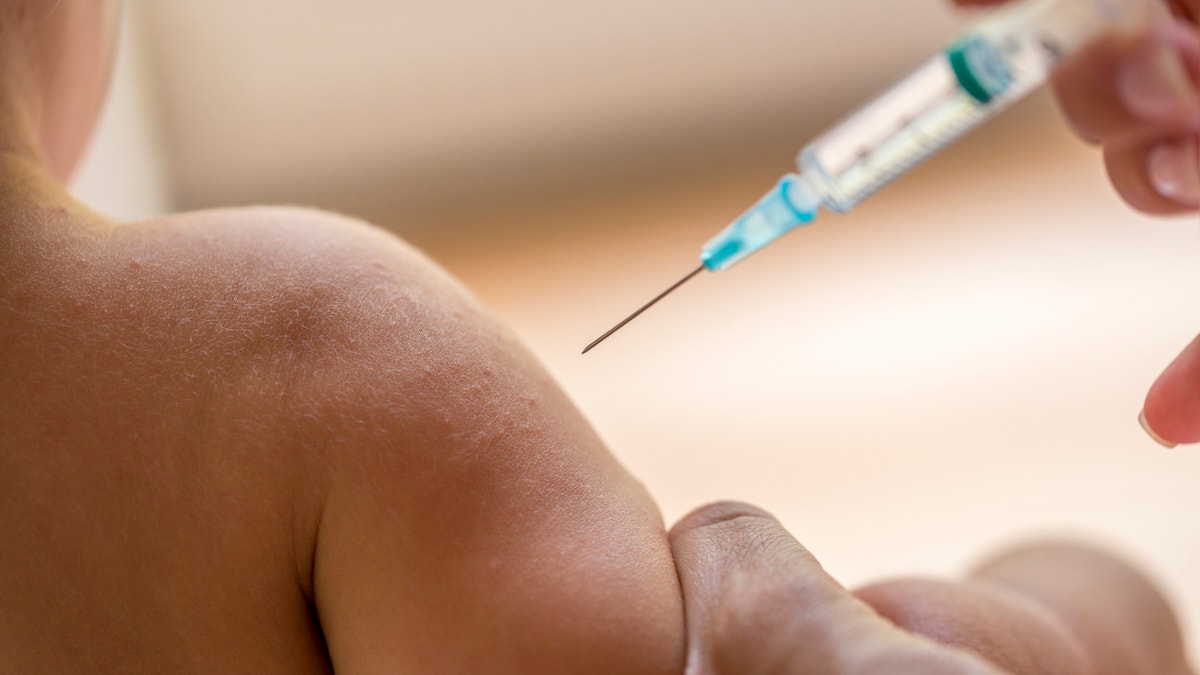
Doctor injecting a young child with a vaccination or antibiotic in a small disposable hypodermic syringe, close up of the kids arm and needle. (iStock)
Doubling up in pain, my 3-year-old twins, Áine and Lena, screamed out in unison as agonizing cramps raged through their tiny stomachs.
My older daughter, Natasha, then 5, was equally stricken — dehydrated and desperately sick.
All three of my kids had rotavirus, the potentially deadly form of diarrhea that could so easily have been prevented if I’d gotten them vaccinated.
The guilt was overwhelming. But I thanked my lucky stars that they were neither newborn babies nor medically fragile, the type of children rotavirus can snatch from this world in a heartbeat.
At that moment, as my husband, Frank, now 40, and I battled the horrible illness ourselves, I began to doubt the anti-vaccine stance I shared with many of my highly educated friends. I’d been raised in a “crunchy” family that questioned authority and the status quo. So, when Natasha was born in February 2010, I entered motherhood with what I thought was a healthy skepticism regarding vaccination.
Purposely seeking out anti-vax books and Web sites that cited links between vaccines and rising rates of allergies, asthma and ADHD, I scared myself to death reading the (since debunked) report by Andrew Wakefield about the MMR (measles, mumps, rubella) inoculation causing autism.
And I found a local pediatrician who agreed not to vaccinate Natasha. Two years later, I stuck to my guns and refused all inoculations for my twins.
